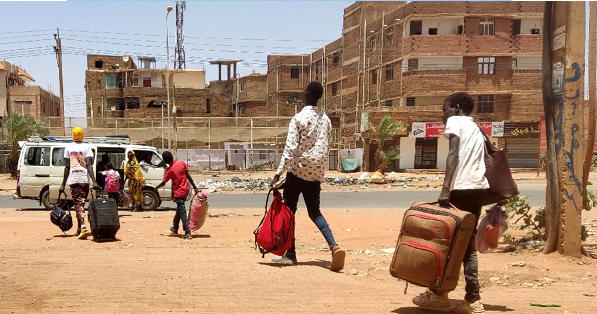Experiencing the impacts of the crisis, the United States is providing an initial $104 million in addition to humanitarian assistance to support countries like Sudan and other neighboring countries, through the U.S. Agency for International Development (USAID). The funding is as follows,
⦁ $50 million to Sudan
⦁ $17 million to Chad
⦁ $8 million for the Central African Republic
⦁ $22 million for South Sudan
⦁ $6 million for Egypt
This is all done to meet the need for humanitarian help resulting from the ongoing crisis.
Support from Government and Humanitarian Partners
It has been reported that the USAID Administrator, Samantha Power said they will aid during her visit to Chad. She further said that she will be meeting Sudanese people who had to leave their houses because of fighting. People who are affected by the ongoing crisis are getting helped by the government and humanitarian partners. Moreover, the US has said that they will give an extra $17 million to Chad. The purpose of giving this money is to help the government and humanitarian partners who are helping Sudanese and other refugees near the border between Chad and Sudan.
Sudanese Refugees
The outbreak in Sudan started on 15th April, and because of this crisis, many people from Sudan started moving from Sudan to Chad. Approximately 76,000 people moved to Chad so that they can get protection from all of this crisis. Before this outbreak, there were about 600,000 refugees in Chad which is the biggest group of refugees in West and Central Africa.
The additional assistance in Chad is helping USAID partners through the UN World Food Program (WFP). The goal of this is to provide help like in-kind food and cash assistance to more than 135,000 people. These not only include the old refugees but also the ones who are newly refugees from Sudan and the refugees that are already living in Chad. At the Chad-Sudan border, the WFP has already helped more than 28,300 Sudanese refugees by distributing food and nutrition assistance to them. The additional assistance is also supporting a service called UN-Humanitarian Air Service that uses planes to transport the aid workers in those areas where the help is needed the most like in eastern Chad.
Difficult situation for humanitarian partners
The conflict in Sudan has made the humanitarian partners in a difficult situation as they are unable to find ways to help places like Chad where assistance in needed the most and the resources are limited. Therefore. The United States is asking for help from other donors to fill the gap and help as many people as we can.
As the conflict in Sudan forces humanitarian partners across the region to make difficult choices about how to address compounding needs with limited resources – especially in places like Chad where existing resources are already stretched thin – the United States urges other donors to help us address critical funding gaps. We continue to stand with all people in Sudan and neighboring countries who are affected by this crisis.

